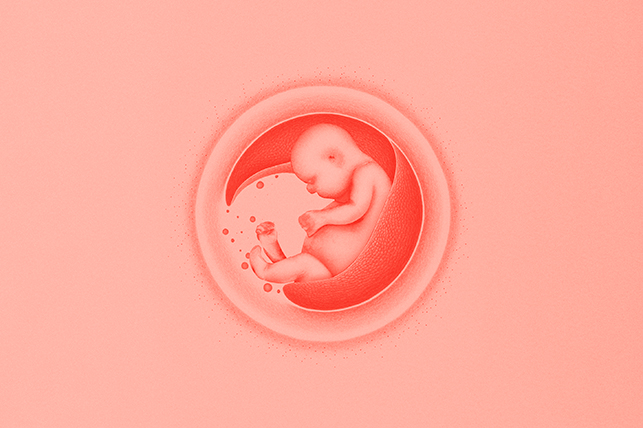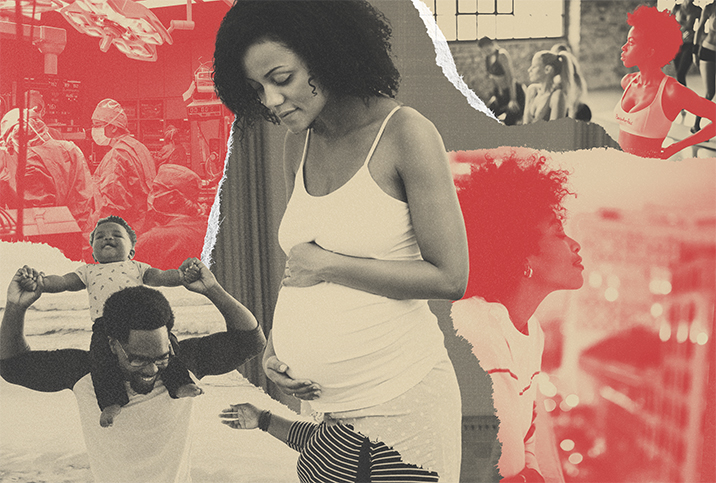Study: Childbirth Is Deadlier for Mothers With Sickle Cell Disease

Sickle cell disease is an inherited genetic disease that affects an estimated 100,000 people in the United States, the majority of whom are Black. Compared to less common diseases that affect mostly white people, the funding disparities for research on sickle cell are striking.
That's according to Lydia Pecker, M.D., an assistant professor of medicine specializing in pediatric hematology at the Johns Hopkins University School of Medicine in Baltimore.
"[These disparities] are the consequences of failure to invest in clinical expertise and infrastructure, research funding and policy initiatives," Pecker said. "They are also the consequence of the global neglect of maternal health in the United States."
A new study, conducted by Pecker and other researchers at Johns Hopkins, underscores the nation's failure to invest in sickle cell disease research and the inadequate pregnancy care available to patients—particularly Black patients—with sickle cell disease.
About the study
The study, published in February in JAMA Network Open, revealed the risk of adverse pregnancy outcomes—including death—is dramatically higher in patients with sickle cell disease than those without, and racial disparities contribute to increased risk.
Researchers pulled data from the National Inpatient Sample (NIS) from 2012 to 2018. The sample included more than 5 million deliveries, including 3,901 deliveries of people with sickle cell disease and 742,164 deliveries of people who were Black. They discovered the maternal mortality rate for deliveries among people with sickle cell disease was 26 times greater than in the non-Black control group, and more than 10 times greater than among pregnant Black women without sickle cell disease.
The authors noted that despite advances in sickle cell disease management and high-risk pregnancy care, risk of death and morbidity for pregnant people with sickle cell disease have not improved since the last NIS analysis of data from 1999 to 2008.
Simply put, this is a racial healthcare disparity, according to lead study author Macy Early, a fourth-year medical student at Johns Hopkins.
"Most people with sickle cell disease in the United States are Black, and so there are intersectional disparities affecting research on sickle cell disease and pregnancy, with structural racism contributing to what we see," Early said.
About sickle cell disease
Sickle cell disease is a disorder where the blood cells become misshapen, clogging the bloodstream and causing oxygen deprivation, which can lead to intense pain, organ damage and stroke.
In pregnancy, sickle cell disease can cause a host of complications, according to study author Ahizechukwu Eke, M.B.Ch.B., Ph.D., an associate professor of gynecology and obstetrics at Johns Hopkins.
"Having sickle cell disease increases the chance of pregnancy morbidities such as preeclampsia, intrauterine growth restriction, small-for-gestational-age, low birth weight and miscarriage," Eke said. "During pregnancy, people with sickle cell disease may also experience an increase in sickle cell disease complications such as pain, acute chest syndrome and even stroke. Both pregnancy and sickle cell disease are risk factors for having a blood clot, which can be in the lungs or the extremities."
Still, most people with sickle cell disease can have a healthy pregnancy with appropriate care, according to Pecker. Unfortunately, people with sickle cell disease cannot always access regular prenatal care due to knowledge gaps, limited resources and financial barriers.
Action items
"We need action from the federal government, the Centers for Medicare & Medicaid Services and the Health Resources and Services Administration to address the sorely limited availability of high-quality comprehensive sickle cell disease care nationally," Pecker urged. "Also, federal legislation aimed at addressing the generally grave maternal mortality and morbidity disparities in the U.S. should include funding to address comprehensive, multidisciplinary care for pregnant people with sickle cell disease."
For anyone with sickle cell disease who is hoping to get pregnant, Early offered the following advice:
"People with sickle cell disease can pursue sickle cell disease specialty care. There is a new way to find a care site through the National Alliance of Sickle Cell Centers," Early said. "And if you're pregnant or thinking about becoming pregnant and you have sickle cell disease, please seek out the care of a sickle cell specialist and an OB-GYN with high-risk expertise."


















